|
|
|
Sort Order |
|
|
|
Items / Page
|
|
|
|
|
|
|
| Srl | Item |
| 1 |
ID:
102194


|
|
|
| 2 |
ID:
132533


|
|
|
|
|
| Publication |
2014.
|
| Summary/Abstract |
The rapid manner in which social protection systems have gained prominence and political support in development and poverty reduction discourse over the past few years is practically without precedent, leading some to consider it "a quiet revolution." Latin American countries have been at the forefront of this "revolution," with political support for government-funded social protection mechanisms going hand in hand with a growing discourse in favor of a human rights approach in development agendas. This approach is in line with the constitutions of most Latin American countries (including Argentina, Bolivia, Ecuador, Colombia, Guatemala, and Brazil), which enshrine a long list of human rights and explicitly recognize that these norms impose limits on state power. This constitutional protection of rights includes not only civil and political rights, but a wide range of economic, social, and cultural rights (see e.g. the constitutions of Colombia, Brazil, and Costa Rica), the prohibition of discrimination (on the grounds of gender, age, ethnicity, disability, sexual orientation, health status, and others), and the obligation to take affirmative action to protect groups that have suffered from structural discrimination (see e.g. constitution of Ecuador).
|
|
|
|
|
|
|
|
|
|
|
|
|
|
|
|
| 3 |
ID:
067398
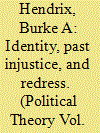

|
|
|
| 4 |
ID:
184093


|
|
|
|
|
| Summary/Abstract |
The UN Development Programme introduced the human security concept in 1994 to address the diversity of challenges to people’s survival, livelihood, and dignity in seven key areas: personal, food, health, economic, political, community, and environmental security. A voluminous literature has since engaged its definitional parameters, theoretical implications, and practical applications. Yet neither dignity nor community security, defined in part to include cultural traditions and identities, have attracted much attention despite considerable human and community insecurities caused by assaults on cultural heritage which, as emblematic of distinctive cultural identities, have downward effects on dignity. This article aims to correct that gap. It identifies and examines three security markers to ascertain and redress the sufferance of indignities and insecurities pertaining to heritage, dignity, and community security: ensuring use of heritage; promoting its transmission; and protecting and advancing cultural rights.
|
|
|
|
|
|
|
|
|
|
|
|
|
|
|
|
| 5 |
ID:
121523


|
|
|
| 6 |
ID:
133822
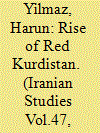

|
|
|
|
|
| Publication |
2014.
|
| Summary/Abstract |
Current literature on twentieth century Kurdish history overwhelmingly covers Kurdish populations and national movements within the borders of Turkey, Iran, Iraq and Syria. This article, hoin Armenia, Georgia, and Azerbaijan,ever, focuses on Soviet Kurdistan and Kurdish policy in Azerbaijan between 1920 and 1937 through the broader question of national minorities within the republic. It is claimed here that the Soviet policy on Azerbaijani Kurds was part of a multilayered issue. First of vnall, the Kurds of Azerbaijan were semi-nomadic mountain dwellers transformed by the modernization policies implemented in Soviet territories. Azerbaijani Kurds were a national identity within the Soviet Union and thus subject to ethnophilic All-Union policies in those years. Finally, Kurds were one of the numerous national minorities in the Soviet Socialist Republic of Azerbaijan who were exposed to the national minority policies executed within the republic by the administration in Baku. The national minority policy in Azerbaijan was often contested and limited by local conditions and obstacles. Therefore, the granting of cultural rights in the 1920s to national minorities, which included the Kurds of Azerbaijan, the promotion of these rights in the 1920s and 1930s, and opposition to these policies can only be examined with regard to these three layers.
|
|
|
|
|
|
|
|
|
|
|
|
|
|
|
|
| 7 |
ID:
127765


|
|
|
|
|
| Publication |
2014.
|
| Summary/Abstract |
This article describes and analyzes two approaches in South Korean civil society to the issue of human rights in North Korea: a civil and political rights-based approach and an economic, social, and cultural rights-based approach that emphasizes the right to food. By analyzing the relationship between the policy stances of South Korean administrations in respect of North Korean human rights (NKHR) and NGO (nongovernmental organization) advocacy, this essay argues that South Korean humanitarian and human rights NGOs contributed to the adoption of different human rights norms in South Korean society. Since 2000, South Korean humanitarian NGOs separated civil and political rights (CPR) concerns from economic, social, and cultural rights (ESCR) concerns and selectively adopted the latter by limiting these human rights to the "right to food." Under the hard-line policy of the Lee Myung-Bak administration (2008-2012), South Korean human rights NGOs resumed active advocacy targeting the international community by exposing poor CPR situation in North Korea through transnational human rights networks given the CPR approach and this led to the dominance of the CPR approach in South Korean civil society. Thus, humanitarian and human rights NGOs in South Korea narrowed the focus of human rights norms to CPR and this emphasis influenced and shaped the way later political administrations in South Korea viewed human rights issues related to North Korea.
|
|
|
|
|
|
|
|
|
|
|
|
|
|
|
|
| 8 |
ID:
123049
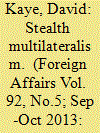

|
|
|
|
|
| Publication |
2013.
|
| Summary/Abstract |
The U.S. Senate rejects multilateral treaties as if it were sport. Some it rejects outright, as when it voted against the Convention on the Rights of Persons With Disabilities in 2012 and the Comprehensive Nuclear-Test-Ban Treaty (CTBT) in 1999. Others it rejects through inaction: dozens of treaties are pending before the Senate, pertaining to such subjects as labor, economic and cultural rights, endangered species, pollution, armed conflict, peacekeeping, nuclear weapons, the law of the sea, and discrimination against women. Often, presidents don't even bother pushing for ratification, since they know the odds are long: under the U.S. Constitution, it takes only one-third of the Senate to reject a treaty.
|
|
|
|
|
|
|
|
|
|
|
|
|
|
|
|
| 9 |
ID:
127767
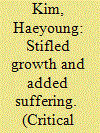

|
|
|
|
|
| Publication |
2014.
|
| Summary/Abstract |
The United States rhetorically promotes a nuclear-free North Korea with an open economic system, eager for the country to become an integrated member of the global community. Sanctions Washington has imposed on Pyongyang since the outbreak of the Korean War, however, have failed to advance this objective. Indeed, sanctions have proven to be counterproductive. While having a negligible effect on North Korea's nuclear and missile programs, sanctions also restrict the inflow of foreign investment, thereby stymieing North Korea's efforts to recalibrate its economic system. The dearth of foreign investment further limits the establishment of market-based exchanges that would facilitate economic liberalization, a process that could improve economic security in North Korea. It is the North Korean people, moreover, not the governing elite, who bear the ultimate costs and suffer under these sanctions, creating undeniable tension when considering the causal relationship between economic sanctions and human rights. Despite assurances offered by U.S. administrations that sanctions policies exclusively target the government, this article argues that economic restrictions play a significant role in the country's economic woes, inhibiting Pyongyang from improving the standard of living for the North Korean people and failing to promote an improvement in basic economic rights.
|
|
|
|
|
|
|
|
|
|
|
|
|
|
|
|
| 10 |
ID:
121512
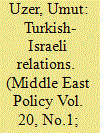

|
|
|
|
|
|
|
|